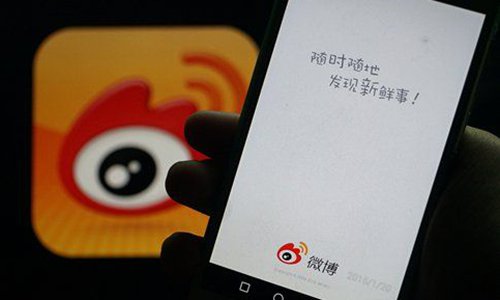
China's top cyber authority removed nearly 10,000 self-media accounts in one of its largest internet purification campaigns in November. Social media platform such as Weibo and WeChat followed the lead and vowed to remove politically harmful and pornographic content.(Photo: Global Times)
China's cyber authorities have launched a six-month campaign to crack down on harmful information online, including pornographic, violent, gambling and superstitious content, in a move to create a cleaner cyber environment.
The Cyberspace Administration of China (CAC) said the campaign strives to contain the spread of harmful information and will close websites and accounts that violate regulations.
The campaign starts from January 2019, and it will last for half a year, said the CAC.
According to the official CAC website, every website and platform is required to be examined for the sake of decreasing 12 kinds harmful information.
The 12 harmful aspects include: pornography, vulgarity, scenes with blood and violence, horror, gambling, online rumors, feudal superstition, trolling and toxic behavior, intimidation, clickbait, incitement of hatred, spreading unhealthy lifestyle information and bad culture.
"The internet administration has become much stricter since 2016," said Wang Sixin, a professor at the Communication University of China in Beijing, while speaking with the Global Times on Thursday, noting that "the current policy is the summation of previous experiences and explores the future development of the network ecology."
The CAC on Wednesday asked news site Sohu to suspend its news service for one week, starting from Thursday.
Similarly, the CAC also asked Baidu, China's search engine giant, to rectify its products, such as closing recommended channels on its app, including "women's channel", "relationship channel" and "humor channel."
Both Baidu and Sohu admitted to accepting the punishment and said they will strictly follow the new law from the CAC to help strengthen network ecological governance.
"The CAC firstly rectifying Sohu and Baidu means their network problems are more severe. And they could be sending a warning to the other websites," Wang added.
Considering the future, Wang expressed his optimism toward the new policy, and he believes that the Internet administration will be more clean and improved in the future.
In November, the CAC met with media platforms, including Baidu, Tencent, Sina and Jinri Toutiao, urging them to regulate self-media on their platforms and remove those who publish pornographic, rumor-based and malicious content.


